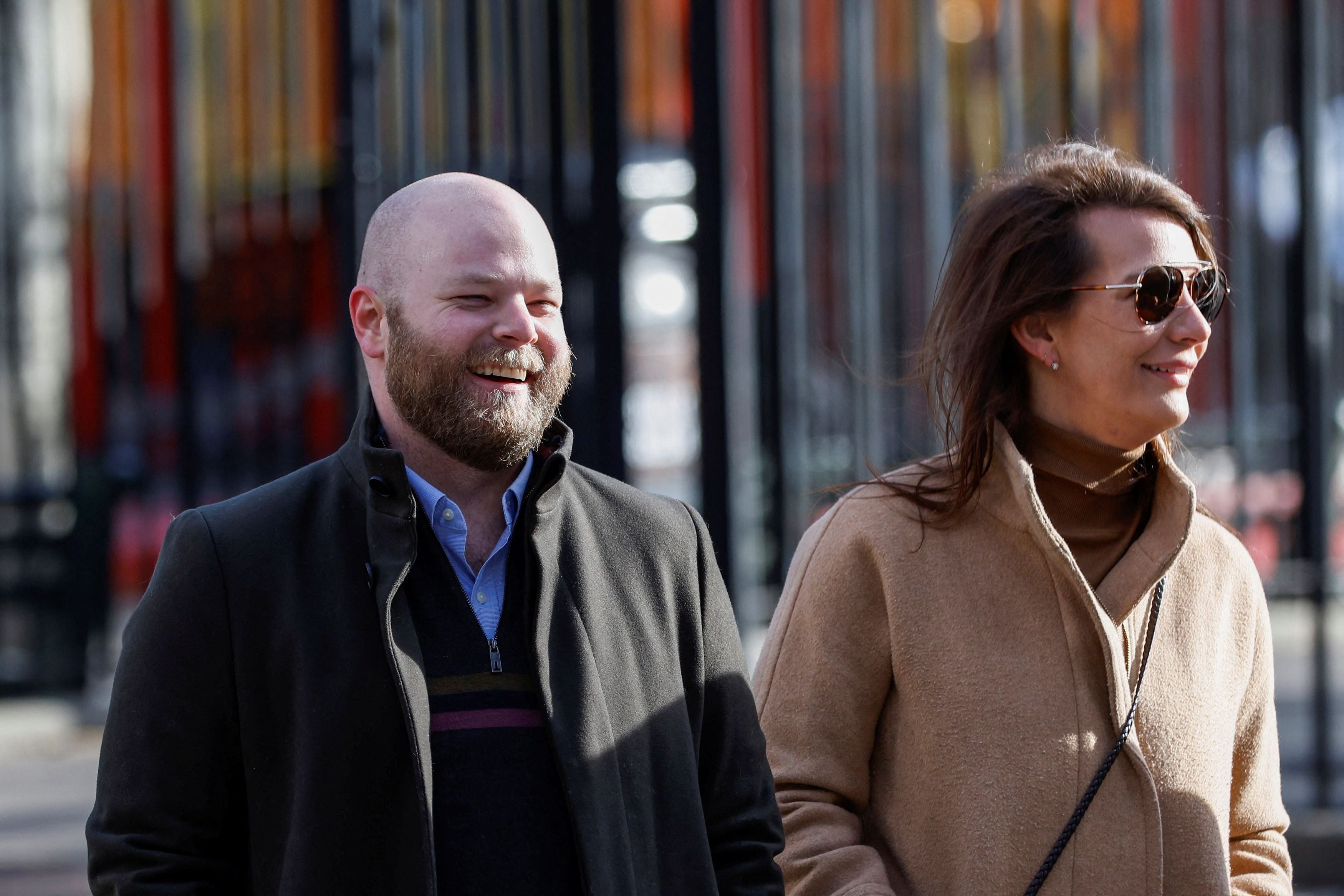Ghislaine Maxwell: Key points from judge’s ruling as sex trafficker’s bid for a retrial denied
Scotty David was ‘credible’ witness when giving evidence at a post-trial hearing, and ‘attentive’ and unbiased throughout Maxwell’s trial, Judge Alison Nathan said

Ghislaine Maxwell’s last-ditch legal effort to have her sex-trafficking convictions dismissed has been rejected.
Here are six key takeaways from Judge Alison Nathan’s 40-page decision.
‘No bias’
Judge Nathan said that the juror known as Scotty David had “testified credibly and truthfully” at a post-trial hearing on 8 March.
“His failure to disclose his prior sexual abuse during the jury selection process was highly unfortunate, but not deliberate,” Judge Nathan said in summing up her decision not to award Maxwell a new trial.
“The Court further concludes that Juror 50 harboured no bias toward the Defendant and could serve as a fair and impartial juror.”
Judge Nathan quizzed Scotty David for more than an hour at the hearing in March, and said she found his sworn testimony to be “credible overall”.
“He was responsive and forthright, and his demeanour evinced that he answered the Court’s questions truthfully.
“He repeatedly and credibly affirmed that his personal history of sexual abuse would not affect his ability to serve as a fair and impartial juror ‘in any way’.”
‘That is not the law’
The judge said that Scotty David could not be considered biased just because he had suffered sexual abuse as a child.
“To imply or infer that Juror 50 was biased — simply because he was himself a victim of sexual abuse in a trial related to sexual abuse and sex trafficking, and despite his own credible testimony under the penalty of perjury, establishing that he could be an even-handed and impartial juror — would be tantamount to concluding that an individual with a history of sexual abuse can never serve as a fair and impartial juror in such a trial,” Judge Nathan said.
“That is not the law, nor should it be.”
She went on to say she had presided over a murder trial in which a juror who had a family member murdered was not struck from the jury.
“So too victims of fraud serve faithfully in fraud trials,” she said.
“Survivors of rape have and can serve impartially in trials charging the crime of rape.”
‘Super distracted’
Maxwell’s lawyers argued that because Scotty David had told the post-trial hearing he had been “super distracted” when he had filled out questions during the pre-trial questionnaire, he was unfit to serve on the jury.
Judge Nathan said Scotty David had proved that his “lack of diligence was limited to the questionnaire session”.
“Juror 50 showed up for trial on time every day and appeared to the Court that he was attentive throughout trial,” she said.
“There is no indication that Juror 50 failed to follow this Court’s instructions during voir dire, trial, or deliberations.”
Scotty David never expected to be selected for jury duty
In arguing that Maxwell’s convictions should be set aside, her lawyers cited previous case law where jurors had lied in the hope of being selected.
However, Judge Nathan said: “This is not a case involving a juror’s extreme deceit due to a desire to be selected.”
Scotty David, referred to as Juror 50 in the ruling, had repeatedly explained that he “never expected or even hoped to be selected” at the 8 March hearing, the judge said.
“The Court finds Juror 50’s testimony to be credible, forthright, and responsive and does not find as a factual matter that Juror 50 deliberately lied in order to be selected as a juror.”
An exceptionally high bar
Judge Nathan said a guilty verdict could be set aside “only in the most extraordinary of circumstances”.
Due to a jury’s critical role in administering justice and the significant investment of public and private resources invested in a trial, a defendant had to show “truly exceptional” circumstances in order to be granted a new trial, she said.
Judge Nathan said she was not swayed to expand this “strictly limited” category by Maxwell’s arguments.
Scotty David’s interview with The Independent cited in ruling
Maxwell’s lawyers claimed that Scotty David’s exclusive interview withLucia Osborne-Crowley forThe Independent after the trial’s conclusion showed he was a “non-neutral advocate for the victims”.
Scotty David told The Independent: “This verdict is for all the victims”. The statement was evidence of his bias against Maxwell, her lawyers argued.
However, Judge Nathan said the statement did not establish that the juror had any prejudice against Maxwell.
“The evidence at trial established that there was more than one victim of the Defendant’s crimes, making Juror 50’s post-trial statement reasonable.
“Juror 50’s view of (Maxwell) after the thirteen-day trial, during which he heard evidence that swayed him and eleven other jurors to convict the Defendant on five counts, does not shed light on any bias he allegedly harboured ‘before he heard the evidence presented’.”
Subscribe to Independent Premium to bookmark this article
Want to bookmark your favourite articles and stories to read or reference later? Start your Independent Premium subscription today.
